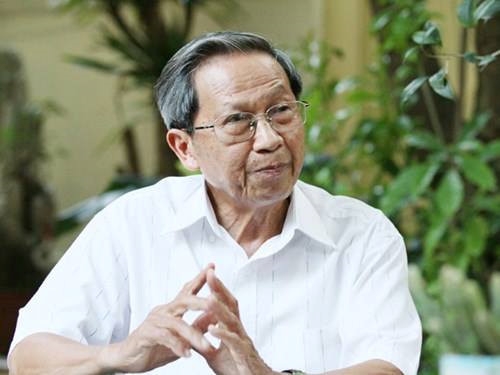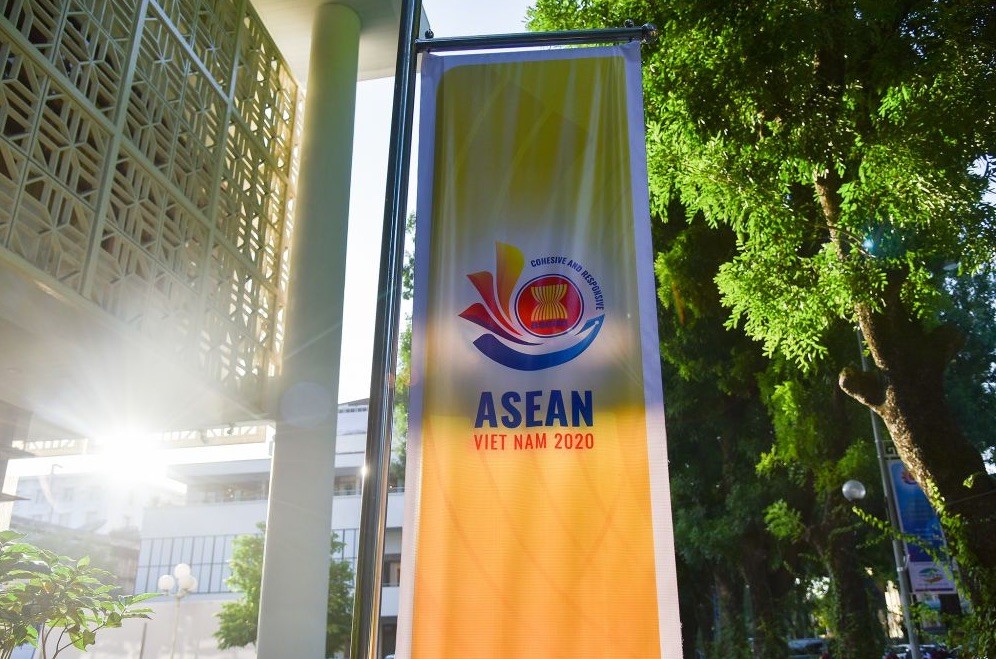
Diplomacy to take the lead in early detecting risks and challenges: Maj. Gen. Le Van Cuong
Latest
 |
| Major General Le Van Cuong, former Director of Institute of Strategic Studies at the Vietnamese Ministry of Public Security. |
According to Maj. Gen. Le Van Cuong, former Director of the Institute of Strategic Studies at the Vietnamese Ministry of Public Security, in the context of regional and global complexities and unpredictability, diplomacy will take the lead in early detecting risks and challenges.
Security-defense and foreign affairs have become inseparable domains against the backdrop of globalization in the world and Viet Nam's extensive international integration, since Viet Nam joined ASEAN and normalized its ties with the US in the mid-1990s. After all, the foreign affairs is a matter of national security, Maj. Gen. Cuong said.
Therefore, the close relationship between security, defense and foreign affairs is an objective reality in the era of globalization and integration for every country all over the world, including Viet Nam.
Additionally, according to Maj. Gen. Le Van Cuong, foreign affairs today also has a role to play in every area, including society, economy, culture, education, among many others.
In the past, traditional security meant the struggle for national defense, with physical weapons as the primary tool, Mr. Cuong said.
In the present day, as traditional and non-traditional security challenges are constantly on the rise, foreign relations become much more important, playing a leading and decisive role in national development.
New security challenges call for new forms of external activities. What is your opinion?
In history, Vietnamese people won the two struggles for national liberation and independence thanks to the leadership of the Communist Party, the close unity and solidarity of tens of millions of people, and international assistance.
Without the supply of weapons, ammunition and necessities from foreign friends and partners, Viet Nam would have still been able to liberate the country. However, it would have taken longer and with more losses and casualties.
Today, as security concepts are expanded, we must extend the scope of diplomacy.
It is cultural diplomacy that can help a country gain attention and respect. It is vaccine diplomacy that shall promote the transfer of vaccine technology, etc. Thus, diplomacy here is not only in culture but also in health and society, etc.
What is your general assessment of the role of diplomacy?
As mentioned above, diplomacy created opportunities for Viet Nam to reduce casualties and shorten the time to liberate the country.
In the meantime, it is not by accident that we have established strategic and comprehensive partnerships with all permanent members of the United Nations Security Council (UNSC). It is also understandable that 192 out of 193 UN members voted for Viet Nam to become a non-permanent UNSC for the term of 2020-2021.
Diplomatic activities have supported Viet Nam in enhancing its global position. Viet Nam's image is promoted through diplomatic activities.
As stated in the Resolution of the 13th National Party Congress, together with defense and security, diplomacy made a significant contribution to the country's overall achievements with "remarkable milestones" such as APEC Summit in 2017 in Da Nang, the World Economic Forum in Ha Noi in 2018 and the US-DPRK Summit in 2019, to name a few.
The Trump-Kim summit in 2019 in Viet Nam put the country in the greatest spotlight for the world press for the first time since 1945 because more than 2,700 international journalists came to Ha Noi to cover the event.
 |
| In 2020, Viet Nam succeeded in taking the ASEAN Chairmanship amid the complexities of the pandemic. |
In 2020, amid a complex pandemic, Viet Nam succeeded in taking the ASEAN Chairmanship, holding hundreds of virtual meetings for the first time.
The close concert between diplomacy - defense - security has helped the international community recognize Viet Nam as a peaceful, safe, stable and hospitable country.
Despite the complexities of development of the COVID-19 pandemic, Vietnam and ASEAN investment has increased during 2021.
Thus, on the axis of diplomacy, security - defense and economy, diplomacy is alike a forerunner in cooperation with security and defense, to pave the way for national development, and conversely, security - defense supported and associated closely with diplomacy.
That is why the 13th National Party Congress raised the issue of promoting the pioneering role of the foreign affairs sector, isn't it?
This is the new perception and mindset of the Party. For the first time, the Resolution of the National Party Congress defined the pioneering role of foreign affairs.
Diplomacy has already taken the lead, especially by indirectly contributing to the battle against COVID-19 through health and vaccine diplomacy.
There has been not only the engagement of the Foreign Minister but also the participation of all the top leaders, from the General Secretary of the Communist Party, the President, the Prime Minister and the Chairman of the National Assembly in vaccine diplomacy, in which the Ministry of Foreign Affairs plays the role of an adviser and organizer .
Fighting against the pandemic is like fighting against the enemy. Diplomacy has been able to break down all barriers to expand cooperation. Many countries have supported Viet Nam with millions or hundreds of thousands of vaccine doses. It is essential that the international community place their trust in us and help us fight COVID-19.
The 13th National Party Congress also calls for a comprehensive and modern diplomacy. What is your thought on comprehensive and modern diplomacy?
Previously, diplomacy referred just to the Ministry of Foreign Affairs. Yet, today, diplomacy has become an activity undertaken by all agencies of the Party, the government, the National Assembly, and the people.
Diplomacy is also of the Ministry of Foreign Affairs, Defense, Public Security, Planning-Investment, Finance, Culture, etc.
This is what comprehensiveness means. As seen after adopting the Resolution of the 13 National Party Congress, diplomatic activities have been implemented across all fields and services, including at the local level.
In your opinion, what are the new requirements for foreign activities in the new context?
As stated in the documents of the 13th National Party Congress, peace and cooperation for development is still the main trend worldwide. However, conflicts still arise in many regions and fields, over economic and political matters, security, territorial sovereignty, religion, ethnicity, etc.
Moreover, that general picture also has many new features. By 2021, strong cooperation and fierce confrontation have emerged between the US and China in the Asia-Pacific region.
And that creates both opportunities and challenges for Viet Nam, especially the pressure to choose a side.
ASEAN will have the opportunity to advance its central role as a connectivity hub, and Viet Nam's role will also be appreciated. Like it or not, big powers have to take into consideration relations with Viet Nam. At the same time, many giant corporations will seek out Viet Nam when they want to find a good destination for their investment.
In that regard, Viet Nam is facing both challenges and opportunities, but the opportunity is more significant than the challenge. The question is, how shall Viet Nam take advantage of the opportunity and overcome the challenge?
According to the 13th National Party Congress’s document, the security environment for the development of our country in the coming time will be full of new and more complex issues. The Government has to think of a way to protect ourselves early and from afar. In your opinion, why should we raise this issue?
Protecting the country early and from afar is a philosophy raised more than 2,000 years ago, during the period of China's most brilliant development with great men like Confucius, Sun Tzu, Mencius, etc.
It is more important to broach the issue in the context of the current complex global landscape with non-traditional and traditional security challenges that would significantly impact the security of Viet Nam in particular and other countries at large.
And in the effort to protect the country from an the early stage, diplomacy takes a leading role. Like “magic eyes", it can detect new changes and risks in the world and region, give warning to all relevant authorities to make timely domestic and foreign policy adjustments, and come up with well-prepared plans to take advantage of opportunities and overcome challenges.
Moving forward, what should we do to better link external security work to foreign affairs?
The most important thing is to be sensitive and aware of significant changes in the region and the broader world, and predict the fluctuations within effective relations.
As I said before, in the context of an increasingly complex regional and global situation, diplomacy will have an increasingly more significant role, being the first to discover opportunities and quickly figure out challenges, providing advice to the Party and Government in order to arrive at strategies to harness the best options and overcome challenges.
Thank you very much!












